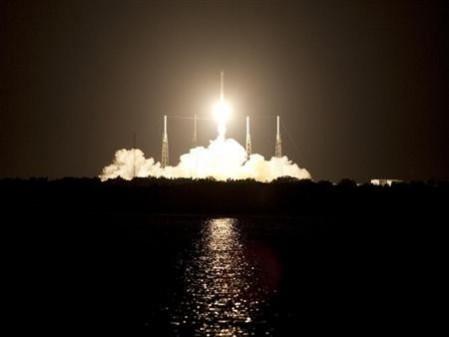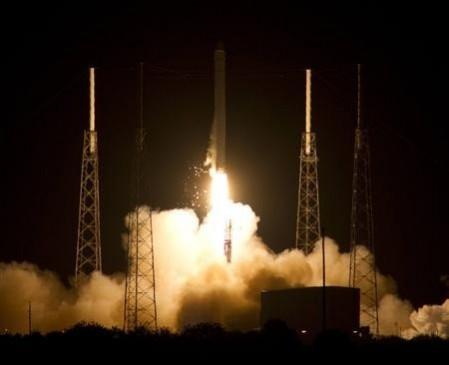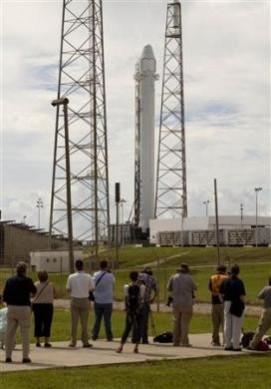California-based SpaceX company on Sunday sent a commercial cargo ship into space, in a mission to re-supply research equipments to the International Space Station in the Earth's orbit.
The unmanned Falcon 9 rocket carrying a Dragon cargo capsule was lifted off from Cape Canaveral station in Florida at 20:35 (00:35 GMT).

The launch marked a new era of privatization of outsourcing cargo services to the space station, which is generally performed by government-owned NASA.
"We're handing off to the private sector our transportation to the International Space Station so that NASA can focus on what we do best: exploring even deeper into our solar system with missions to an asteroid and Mars on the horizon," NASA Administrator Charles Bolden said at a press conference.

Scientists at the Florida space agency declared it as a successful launch and expect the cargo ship to reach the ISS on Wednesday.
The Dragon cargo capsule will deliver over 1,000 pounds of equipments, including a freezer to keep laboratory samples at low temperatures and a powered middeck locker with an experiment inside, to the astronauts working on the space station.
The craft will take off from the ISS in three weeks, carrying almost 2,000 pounds of used supplies, experiments, results and other materials back to Earth.

This is the second time SpaceX launched a commercial flight to the ISS. In May, the company successfully blasted off a test flight, in which the rocket followed the similar routine of being pulled by the station's robotic arm into the berthing port.
Sunday's launch is the first of its kind under the $1.6 billion contract between NASA and Space X. The contract calls for 12 resupply missions to the ISS.
SpaceX or Space Exploration Technologies Corp is owned by Elon Musk, who is also the chief executive officer of Tesla Motors. The company has so far sent only unmanned cargos to the space station and is now planning for a manned flight in the next three years, Agence France-Presse reported.
Another private-run cargo-mission is being readied for a demonstration flight. Virginia-based Orbital Sciences Corp will send its Antares rocket by the end of the year.
















